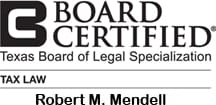What Is Income?
The Sixteenth Amendment gave Congress the power to tax all income from “whatever source derived.” In general then, all income is subject to tax. The Internal Revenue Code (IRC), which is the main source of federal tax law, does not specifically define income.
Under section 61 of the IRC, gross income is defined as all income from whatever source derived including:
- Compensation for services, including fees, commissions, fringe benefits and similar items
- Gross income derived from business
- Gains derived from dealings in property
- Interest
- Rents
- Royalties
- Dividends
- Alimony and separate maintenance payments
- Annuities
- Income from life insurance and endowment contracts
- Pensions
- Income from discharge of indebtedness
- Distributive share of partnership gross income
- Income in respect of a decedent
- Income from an interest in an estate
Several things are also specifically excluded from the definition of gross income under the IRC, including: contributions to the capital of a corporation; the value of meals or lodging provided to an employee by an employer for the employer’s convenience; and fringe benefits that an employer provides to an employee (no-additional-cost services, qualified employee discounts, working condition fringes, de minimis fringes, qualified transportation fringes and qualified moving expenses reimbursement). See 26 U.S.C. §§118(a), 119(a) and 132.
Adjusted gross income is gross income minus certain allowable deductions (listed in section 62 of the IRC), but before standard or itemized deductions and personal exemptions are applied. The deductions listed in section 62 are:
- Trade and business deductions
- Certain trade and business expenses of employees
- Losses from the sale or exchange of property
- Deductions attributable to rent and royalties
- Certain deductions of life tenants and income beneficiaries of property
- Pension, profit-sharing and annuity plans of self-employed individuals
- Retirement savings
- Penalties forfeited because of premature withdrawal of funds from time savings accounts or deposits
- Alimony
- Reforestation expenses
- Certain required repayments of supplemental unemployment compensation benefits
- Jury duty pay remitted to employer
- Deduction for clean fuel vehicles and certain refueling property
- Moving expenses
- Archer medical savings accounts (MSAs)
- Interest on education loans
- Higher education expenses
- Health savings accounts
- Costs involving discrimination suits
26 U.S.C. §§62(a)(1)-(20).
Taxpayers are taxed on taxable income, which is defined in section 63. For individuals who do not itemize their deductions, taxable income is adjusted gross income minus the standard deduction and the deduction for personal exemptions provided in section 151. For individuals who elect to itemize their deductions, taxable income is adjusted gross income minus the deductions allowed by section 63, other than the standard deduction. Itemized deductions include deductions for medical expenses, state and local taxes paid, real estate taxes paid, mortgage interest, investment interest charitable contributions, casualty and theft losses and unreimbursed employee expenses.
Copyright © 2008 FindLaw, a Thomson Reuters business
DISCLAIMER: This site and any information contained herein are intended for informational purposes only and should not be construed as legal advice. Seek competent counsel for advice on any legal matter.



